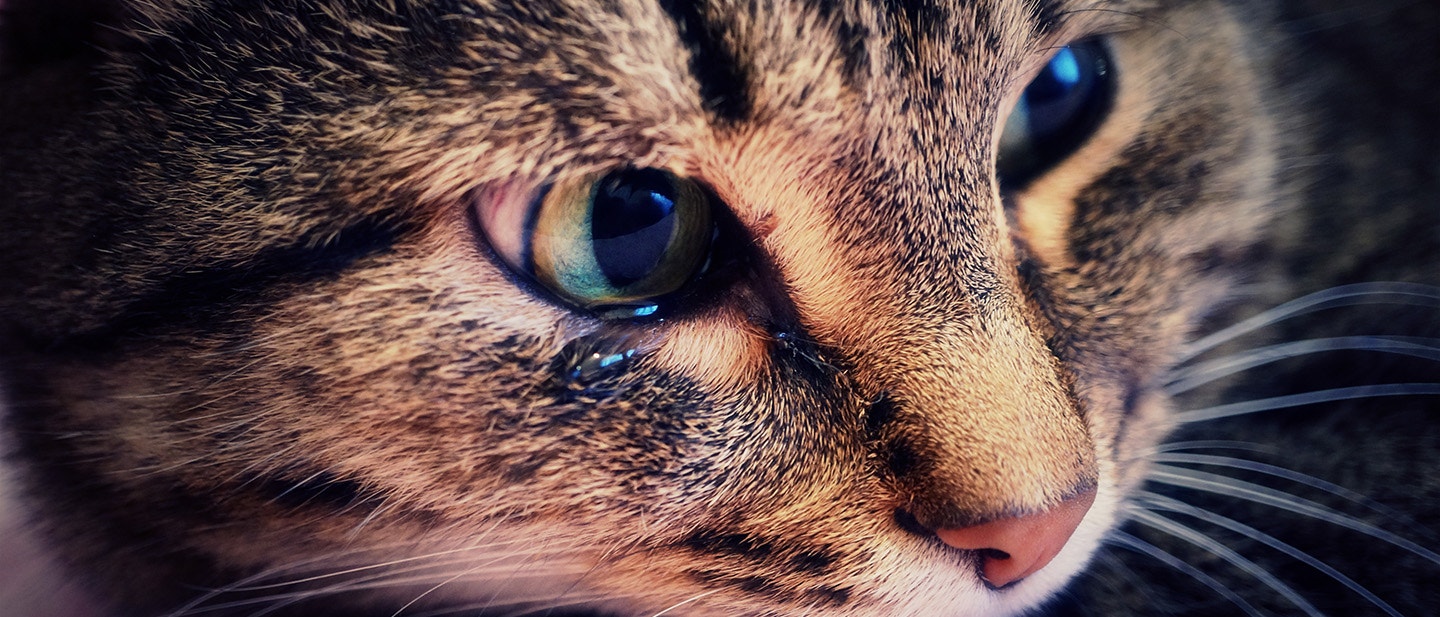
CAN CATS GET HAYFEVER?
Have you ever noticed your cat sneezing while playing outdoors and wondered if cats can get hay fever too? Cats can suffer from hay fever during the spring and summer months just like humans do and many of their symptoms are very similar. A cat sneeze can sound a lot like a human sneeze, but it can also sound like a reverse sneeze, a bit like a snort. The signs of cat hay fever can be easily confused with something else, such as cat flu symptoms, so we have put together this handy guide to help you understand the various causes of hay fever in cats and when it’s time to consult a veterinarian for some advice.
What causes hay fever in cats?
Cat hay fever refers to the allergic reaction caused by allergens in the environment entering and irritating the nasal passage. There are different types of pollen including grass pollen, tree pollen and weed pollen. Dust mites, animal fur or hair and different spores from fungi and mould can also cause allergies. The main culprits are usually grass and tree pollen during the spring and summer months. Understandably, cats that venture outdoors are the most likely to experience hayfever symptoms due to their increased exposure to plants, trees and a wider variety of stimuli. However, cats that are kept inside can still be susceptible or even become more sensitive to pollen over time, from pollen on cut flowers or houseplants indoors.
What causes Grass pollen hay fever in cats?
Can cats get hay fever from grass pollen? Yes, cats can experience hay fever from grass pollen. Grass pollen is one of the most common triggers of hay fever and is most active from mid-May until July.
Grass pollen comes from the flowers of grass plants and allergies can be eased by mowing your lawn regularly, keeping your cat indoors when the pollen count is high or ensuring windows and doors are closed to stop pollen entering the house. Outdoor cats are more likely to suffer from hay fever due to their high exposure levels, grass allergy is much less likely in indoor cats.
What causes Tree pollen hay fever in cats?
Can cats get hay fever from tree pollen? Yes, cats can experience hay fever from tree pollen. Tree pollen is most active in the UK from late March to mid-May, with the peak season lasting from mid-May to June. Outdoor cats are more likely to get hay fever due to their high exposure levels. Keeping your cat indoors when the pollen count is high or ensuring windows and doors are closed to stop pollen from entering the house may help.
Many trees produce pollen including:
- Birch, alder, hazel, oak, willow, beech, elm, cedar, horse chestnut, olive, mulberry and yew.
What are the symptoms of cat hayfever?
Do cats get hay fever symptoms? Yes, hay fever can affect cats just like it affects us, although it is not as common. Hay Fever can cause havoc with their nasal passages, making breathing difficult, so it is important to be aware of how it manifests in cats. The most common signs of cat hay fever include:
- Excessive scratching (this could also be due to a recent flea infestation)
- Itchy or runny eyes
- Sneezing
- Wheezing
- Snoring
- Runny nose
All of the symptoms above can also be associated with cat flu or other respiratory viruses, always seek advice and treatment from your vet if you suspect your cat is suffering from hay fever or other respiratory viruses.
How can hayfever in cats be treated and prevented
Can cats get hay fever every year? Yes, hay fever returns with the seasons, so if you suspect your cat is suffering we recommend that you visit the vet so your cat can be diagnosed by a professional. Hay fever can be easily treated and there are many treatments available to help your pet breathe more easily.
Can cats have hay fever tablets? Yes! Daily antihistamines are one weapon in your cupboard to help combat your cat’s hay fever symptoms alongside allergy injections, frequent coat grooming (bathing or brushing) and keeping them indoors when pollen is at its worst. You can check the pollen count on your phone. Evening primrose oil, formulated for cats, can be used as a supplement alongside a complete and well-balanced diet.
Conclusion: Can cats get hayfever
Do cats get hay fever? Yes, cats can suffer from hay fever just like we do, cat hay fever refers to the allergic reaction caused by allergens in the environment when they enter the nasal passage. There are different types of pollen including grass pollen, tree pollen and weed pollen. Dust mites, animal hair or fur and different spores from fungi and mould can also cause allergies.
The main culprits are usually grass and tree pollen during the spring and summer months. Understandably, cats that venture outdoors are the most likely to experience hay fever symptoms due to their increased exposure to plants, trees and a wider variety of stimuli. However, cats that are kept inside can still be susceptible or even become more sensitive to pollen over time. It is important to note that some indoor plants can also cause hay fever in cats.
If you suspect your cat is suffering from hay fever we suggest you visit the vet so your cat can be diagnosed by a professional. Hay fever can be treated easily and there are many types of treatments available to help your pet breathe better, from antihistamines to allergy injections and frequent grooming.
FAQs: Hayfever in cats
If you are unsure on how to get rid of fleas on kittens, treatment involves using a fine-toothed flea comb to remove fleas from their fur manually. You can also use a gentle flea bath for kittens with vet-approved products. However, consulting a vet for appropriate flea treatments is the best approach for a fast and lasting solution.
